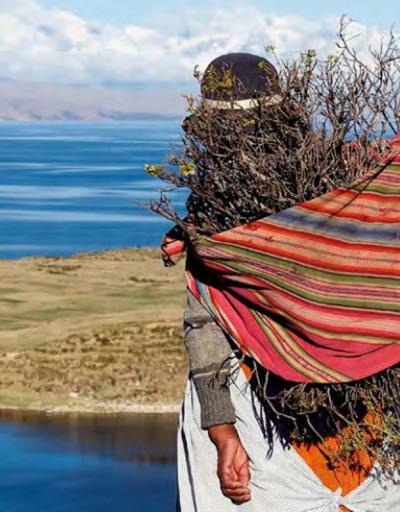
BES-Net Indigenous and Local Knowledge Support Unit
The Biodiversity and Ecosystem Services Network (BES-Net) aims to build capacity and commitment for biodiversity action across the world by translating the latest Intergovernmental Science-Policy Platform on Biodiversity and Ecosystem Services (IPBES) products into action for biodiversity and conservation on the ground.
UNESCO-LINKS has been leading the BES-Net Indigenous and Local Knowledge (ILK) Support Unit since 2020.
The BES-Net ILK Support Unit facilitates the engagement of Indigenous Peoples and local communities by integrating their views and knowledge into the BES-Net participatory, collaborative, and country-driven initiatives, including national ecosystem assessments, multistakeholder Trialogue processes, and the BES Solution Fund.
The ILK Support Unit also organizes dissemination events and develops communication knowledge products on Indigenous and local knowledge related to biodiversity and ecosystem services.
BES-Net is funded by the Government of Germany through its International Climate Initiative, and by SwedBio, a programme of the Stockholm Resilience Centre.
Indigenous and local knowledge in National Ecosystem Assessments
A national ecosystem assessment is a nationally-driven process to develop an up-to-date, comprehensive and critical synthesis of knowledge on biodiversity and ecosystem services and their interlinkages to people. The BES-Net ILK Support Unit works closely with the national ecosystem assessment coordination team and authors, and the NEA Initiative at the UN Environment Programme World Conservation Monitoring Centre (UNEP-WCMC), to cohesively incorporate Indigenous and local knowledge to ensure the national ecosystem assessments are informed by the best available knowledge.
Indigenous and local knowledge and the BES Solution Fund
The BES Solution Fund is a catalytic fund aiming to upscale and implement findings and recommendations emerging from the IPBES assessments and national ecosystem assessments. It is managed by the United Nations Development Programme (UNDP) for BES-Net. UNESCO-LINKS provides technical backstopping and capacity building support to promote the uptake and implementation of Indigenous and local knowledge findings from IPBES and national ecosystem assessments.

Indigenous and local knowledge in the BES-Net Trialogues
Recognizing that Indigenous and local knowledge can guide biodiversity and ecosystem services policies, BES-Net Trialogues create space for dialogue between Indigenous Peoples and local communities, scientists, practitioners, and policymakers to help build inclusive, locally appropriate policies and conservation actions. UNESCO-LINKS works closely with UNDP and country partners to mainstream Indigenous and local knowledge in the BES-Net Trialogue process.
Global awareness and knowledge exchange
BES-Net ILK Support Unit works closely with BES-Net consortium partners (UNDP and UNEP-WCMC) and Indigenous Peoples’ organizations and networks to create awareness on the importance and contributions of Indigenous and local knowledge, particularly on biodiversity conservation.








